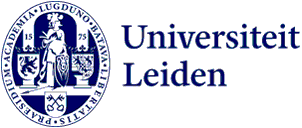
Antibiotic resistance: an economic problem universities could help to solve
Antibiotic resistance is an economic problem. Pharmaceutical companies cannot earn much from antibiotic research, so they do not invest in it. This makes it important that universities do so, says Ned Buijs. As a PhD candidate he took the first step in developing a new generation of antibiotics.
During his PhD, Buijs worked on the antibiotic bacitracin. This antibiotic, which was developed in the 1940s, works against gram-positive bacteria such as MRSA, the hospital bacteria, for example. Bacitracin interferes with the bacterial cell wall, preventing the bacteria from growing further and eventually causing them to die.
Improving antibiotics with chemistry
Bacitracin is a natural agent against bacteria. Buijs used a recently created crystal structure of bacitracin, a kind of 3D visualisation of the antibiotic, to gain more insight into the drug. He managed to replicate the antibiotic before using synthetic chemistry to improve it.
Buijs replaced parts of the antibiotic molecule with synthetically produced amino acids. The synthetic molecules do not occur in nature and make bacitracin more effective against bacteria. ‘What is interesting is that a small change in molecules causes a big change in bacitracin’s activity’, says Buijs. Bacteria resistant to the pre-existing version of bacitracin are no match for Buijs’ modified version.
‘A small change in molecules causes a big change in bacitracin’s activity.’
A bit toxic
Bacitracin is currently used as an ointment because it is toxic when ingested. Although it is not yet known whether Buijs’s molecules are similarly toxic, it is known why the antibiotic becomes toxic and the plan is to address that. ‘This should allow us to make ingestible versions of bacitracin. That would be a great improvement because it could then be used for many different purposes.’
Buijs is leaving how to improve bacitracin to other researchers. He is now working as a postdoc in Leiden and is going to investigate how the NNMT enzyme can help fight certain types of cancer. Professor of Biological Chemistry Nathaniel Martin recently received a Dutch Research Council (NWO) grant for this.
Developing new antibiotics unprofitable for pharma companies
Buijs does think it’s a shame he can’t continue his research on antibiotics. ‘But there are very few places where you can do that.’ He stresses that research on new antibiotics is conducted at universities. This is not only because bacteria are increasingly resistant to antibiotics but also because almost no one else is doing this research. ‘Antibiotic resistance is an economic problem. Pharma companies don’t make money with research on new antibiotics.’
There are several reasons for this: existing antibiotics are cheap and they usually work. ‘The problem is that they no longer help some patients, which means there is no longer a perfect solution. Another reason why antibiotic research is not so interesting to pharma companies is that after taking antibiotics for a week, people are healthy again.’ So it is less profitable for them than other drugs that people have to take for a much longer period. ‘It’s a shame that the development of new antibiotics is all about making money.’
Text: Dagmar Aarts
Photo: Unsplash
